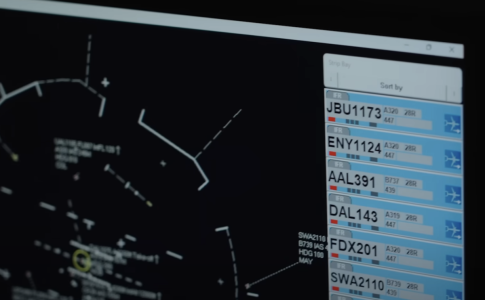Lawmakers propose $15B for air travel upgrades—some drivers could face new annual fees
By
Veronica E.
- Replies 0
If you’ve experienced flight delays or long waits on the tarmac, you’re not alone.
Persistent issues with aging air traffic control systems and staffing shortages have long strained the US aviation industry.
Now, a new proposal aims to modernize key infrastructure and improve air travel—but it may come with new costs for electric vehicle (EV) owners.
A bill introduced by US House Republicans, led by Representative Sam Graves, would allocate $15 billion toward reforming the Federal Aviation Administration (FAA).
The funding would cover major upgrades to aging towers, radar systems, and communication infrastructure, and includes $1 billion for hiring additional air traffic controllers.
The FAA currently faces a shortfall of approximately 3,500 controllers, leading to reports of mandatory overtime and six-day workweeks for many in the field.

Transportation Secretary Sean Duffy is expected to request even more federal support in the months ahead.
Recent safety incidents have drawn renewed attention to these issues, including a collision earlier this year involving an Army helicopter and a commercial airliner, which resulted in 67 fatalities.
Industry groups—including airline operators, aircraft manufacturers, and unions—have voiced support for the proposed legislation, calling it a "much-needed downpayment" on safety and efficiency upgrades.
To help offset costs for road maintenance, the proposal includes new annual fees for vehicle owners, particularly those who do not pay fuel taxes. The bill outlines:
These fees are projected to generate at least $50 billion over ten years, helping to address the funding shortfall caused by the decline in fuel tax revenue.
As more drivers switch to electric vehicles, lawmakers are exploring ways to ensure all motorists contribute to road upkeep.
While this type of policy is already in place in some US states, federal efforts are gaining attention.
Earlier this year, a separate proposal suggested a $1,000 tax on EVs, highlighting the growing debate over how to finance highway infrastructure.
Since 2008, more than $275 billion has been transferred from the general fund to support road repairs in the US, as fuel taxes have not kept pace with rising costs.
Supporters of such measures argue that EV owners should contribute equitably to road infrastructure.
Others raise concerns that additional fees may discourage people from switching to more environmentally friendly transportation—especially as many governments also offer rebates or incentives for EV adoption.
As governments invest in modern infrastructure and the transportation landscape evolves, policies will need to strike a careful balance between fairness, sustainability, and accessibility.
Read next: Is your vehicle at risk? These two popular car brands recall 208,000 cars for critical power loss issue!

What do you think? Are these fees a fair solution—or do they risk slowing progress toward cleaner transportation? Let us know your thoughts in the comments below.
Persistent issues with aging air traffic control systems and staffing shortages have long strained the US aviation industry.
Now, a new proposal aims to modernize key infrastructure and improve air travel—but it may come with new costs for electric vehicle (EV) owners.
A bill introduced by US House Republicans, led by Representative Sam Graves, would allocate $15 billion toward reforming the Federal Aviation Administration (FAA).
The funding would cover major upgrades to aging towers, radar systems, and communication infrastructure, and includes $1 billion for hiring additional air traffic controllers.
The FAA currently faces a shortfall of approximately 3,500 controllers, leading to reports of mandatory overtime and six-day workweeks for many in the field.

Proposed legislation aims to modernize US air traffic systems while introducing new road fees for certain vehicles. Image Source: YouTube / CNBC.
Transportation Secretary Sean Duffy is expected to request even more federal support in the months ahead.
Recent safety incidents have drawn renewed attention to these issues, including a collision earlier this year involving an Army helicopter and a commercial airliner, which resulted in 67 fatalities.
Industry groups—including airline operators, aircraft manufacturers, and unions—have voiced support for the proposed legislation, calling it a "much-needed downpayment" on safety and efficiency upgrades.
Road funding changes could affect EV and hybrid owners
To help offset costs for road maintenance, the proposal includes new annual fees for vehicle owners, particularly those who do not pay fuel taxes. The bill outlines:
- A $200 annual fee for electric vehicles
- A $100 annual fee for hybrids
- A $20 federal registration fee for all vehicles, beginning in 2031
Also read: Major changes to air travel are here—and loyal passengers just got a surprise
These fees are projected to generate at least $50 billion over ten years, helping to address the funding shortfall caused by the decline in fuel tax revenue.
As more drivers switch to electric vehicles, lawmakers are exploring ways to ensure all motorists contribute to road upkeep.
While this type of policy is already in place in some US states, federal efforts are gaining attention.
Earlier this year, a separate proposal suggested a $1,000 tax on EVs, highlighting the growing debate over how to finance highway infrastructure.
Also read: Elon Musk’s next big move in aviation–What it means for the future of air travel
Broader implications in the US
Since 2008, more than $275 billion has been transferred from the general fund to support road repairs in the US, as fuel taxes have not kept pace with rising costs.
Supporters of such measures argue that EV owners should contribute equitably to road infrastructure.
Others raise concerns that additional fees may discourage people from switching to more environmentally friendly transportation—especially as many governments also offer rebates or incentives for EV adoption.
As governments invest in modern infrastructure and the transportation landscape evolves, policies will need to strike a careful balance between fairness, sustainability, and accessibility.
Read next: Is your vehicle at risk? These two popular car brands recall 208,000 cars for critical power loss issue!
Key Takeaways
- US House Republicans have proposed $15 billion in new funding for air traffic control reform, including upgrades to aging facilities and increased hiring.
- The bill suggests introducing a new $200 fee for electric vehicles, as well as additional fees for hybrids and all vehicles, to help cover road repair costs not currently paid by EV drivers.
- These proposed fees are expected to generate at least $50 billion over ten years for highway infrastructure, addressing the funding gap as fuel tax revenue declines.
- Persistent air traffic controller shortages and recent safety incidents have intensified calls for infrastructure and staffing reforms, with the proposal receiving support from various aviation industry groups.
What do you think? Are these fees a fair solution—or do they risk slowing progress toward cleaner transportation? Let us know your thoughts in the comments below.






